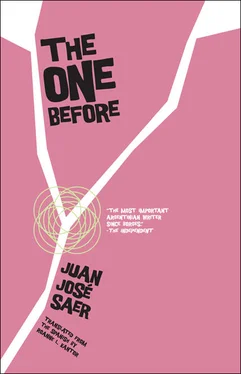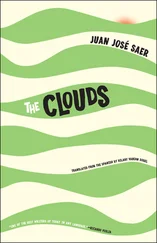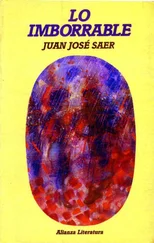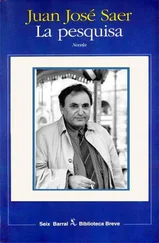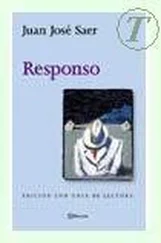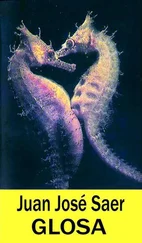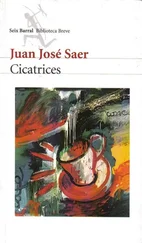Juan Saer - The One Before
Здесь есть возможность читать онлайн «Juan Saer - The One Before» весь текст электронной книги совершенно бесплатно (целиком полную версию без сокращений). В некоторых случаях можно слушать аудио, скачать через торрент в формате fb2 и присутствует краткое содержание. Год выпуска: 2015, ISBN: 2015, Издательство: Open Letter, Жанр: Современная проза, на английском языке. Описание произведения, (предисловие) а так же отзывы посетителей доступны на портале библиотеки ЛибКат.
- Название:The One Before
- Автор:
- Издательство:Open Letter
- Жанр:
- Год:2015
- ISBN:9781940953137
- Рейтинг книги:5 / 5. Голосов: 1
-
Избранное:Добавить в избранное
- Отзывы:
-
Ваша оценка:
- 100
- 1
- 2
- 3
- 4
- 5
The One Before: краткое содержание, описание и аннотация
Предлагаем к чтению аннотацию, описание, краткое содержание или предисловие (зависит от того, что написал сам автор книги «The One Before»). Если вы не нашли необходимую информацию о книге — напишите в комментариях, мы постараемся отыскать её.
, and
, all of which are available from Open Letter). Saer's typical themes are on display in this collection as well, as is his idiosyncratic blend of philosophical ruminations and precise storytelling.
From the story of the two characters who decide to bury a message in a bottle that simply says "MESSAGE," to Pigeon Garay's attempt to avoid the rising tides and escape Argentina for Europe,
evocatively introduces readers to Saer's world and gives the already indoctrinated new material about their favorite characters.
The One Before — читать онлайн бесплатно полную книгу (весь текст) целиком
Ниже представлен текст книги, разбитый по страницам. Система сохранения места последней прочитанной страницы, позволяет с удобством читать онлайн бесплатно книгу «The One Before», без необходимости каждый раз заново искать на чём Вы остановились. Поставьте закладку, и сможете в любой момент перейти на страницу, на которой закончили чтение.
Интервал:
Закладка:
Or even: Blessed are those who stay behind, Tomatis, blessed are those who stay behind. Traveling so much, your footprints overlap, your traces are submerged or washed away and, at any rate, if you should ever come back, it comes with you, intangible, that foreignness, and seeps into the very place where you were born.
The Scattering
The people of my generation scatter, in exile. From the living branch of our youth there remain no more than two or three pale petals. Death, politics, marriage, travels have been silently separating us, prisons, possessions, oceans. Years ago, in the beginning, we met in blossoming patios and conversed until daybreak. We walked slowly around the city, from the illuminated streets of the center to the dark river, shrouded in the silence of sleeping neighborhoods, on the cool café sidewalks, in the paradise of our natal homes. We smoked tranquilly beneath the moon.
Of that past life, nothing remains but news or memories. But all of that is something compared with what has happened to those who have not scattered. Among them the exile is even greater. Each one has been immersing himself deeper into his own ocean of hardened lava, and when they imitate conversation, anyone can see that it is nothing more than noises, with no music or meaning. They have all turned their eyes inward, but those eyes see nothing more than a sea of minerals, smooth and gray, refracting every resolution. And if you can look into their pupils, which rarely happens, you would catch a glimpse of a desert compared to which the Sahara would doubtless acquire all the attributes of the Promised Land.
The Body
The body sends messages saying “don’t forget, you up there.” It throbs dully. Death, an elegant exit to such indecisive precariousness, approaches, coming from the very beginning by its own road, until it arrives, so to speak, out into the open. It keeps rising despite every obstacle or interruption.
The problem, Barco kept telling himself, was not in trying not to die, but in maintaining some equilibrium between what lay above and below, chance and its opposites. The body is chance. Its opposites vary historically — if not, really, ideologically.
Today I do not have the strength, truly; no strength. Not even that nourishing strength we call the power of seduction. The absence of hunger is morally wrong, they claim, in this century of gluttons. Do you see what I mean when I say that the opposites of chance vary historically? Illness, fatigue, failure of will: you have proven wisely the durability of chance against the dictatorship of insatiable hunger.
On Dry Shore
The day after acing his geometry exam, Tomatis convinced his father to renew his membership card at the Boating Club and spent the whole afternoon in the office going through the paperwork to reissue it. It was sitting in a cubicle while he waited for the new card that he conceived of the idea of the message, and when they gave him the card he went down to the bar and called Barco on the phone. Barco liked the idea. He said that he had sealing wax — because they would have to seal the top of the bottle — and that they should meet up that very night to discuss the contents of the message. So it was that, at around nine when it began to get dark, Tomatis heard Barco’s voice from his room as Barco spoke with his father in the kitchen, followed by his footsteps coming up the stairs onto the landing. The window to Tomatis’ room was open, and having entered without so much as a hello, Barco poked his head outside and said something about the starry sky. He undid the top two buttons of his shirt and began to wave it against his chest to dry his sweat. From the window Tomatis hollered to his mother to make them some sangria, because the whole house had been inclined to grant his every wish since the day before when, with his geometry exam, he had finished his degree. While they waited for the sangria, Barco helped him hang, on the yellow wall, over the couch, to one side of the bookshelf, a copy of Van Gogh’s Wheat Field with Crows that Tomatis had gotten framed in a picture shop that morning.
They argued over the text of the message for more than two hours, drinking the sangria that Barco continually stirred with a spoon so that the sugar in it wouldn’t settle and the ice tinkling against the inside of the frosty pitcher would melt faster. The idea of writing the message in verse, suggested by Tomatis, was rejected instantly.
“They might think we actually talked like that,” Barco objected.
Immediately they began to throw out ideas: a summary of the city’s history, or perhaps a catalogue of inventions of the era, or, better yet, a brief biography of Carlos Tomatis and Horacio Barco, or even a deliberately false description of the human body to provoke an erroneous theory of evolution. They were tempted for a moment by the last option and laughed about it until they were both in stitches, roaring so loudly that Tomatis’s father, who had gone to bed some time earlier, scolded them from the darkness below to keep it down. Then Barco remarked that the inclination to humor always spoiled things, and that, in the end, the contents of the message didn’t matter — the important thing was the message itself, because the value of a message lay not in what it said, but in its ability to reveal the existence of men disposed to writing messages. He said that if the contents of a message were so important, it wasn’t a message at all but simply information.
“The best thing a message can say,” said Barco, “is just message . So even when everything would seem to indicate we should write HELP! I’d suggest that we write this is a message , or just message , short and sweet.”
Tomatis considered this a moment and at last agreed, only to encounter another question: who would write the word?
“Keeping in mind,” said Barco, “that the idea was yours and that there’s reason to believe that in time you’ll become a professional writer, I propose the writing of the text should fall to you.” That said, Tomatis tore out a blank page, placed it on the table under the light of the lamp, cleaned the point of his pen, tested it out on the margin of his geometry notebook and then, slowly, with great care, feeling Barco’s gaze over his shoulder fixed on his steady hand holding the pen, he wrote in great black printed letters the word: MESSAGE; and, as his hand continued moving from right to left, the blank rectangular page passed from extreme whiteness, undifferentiated, from limbo, from a flat and anonymous horizon, selected by chance by a blind hand from among a mountain of identical sheets that lay dusty and mute in the desk drawer, until the word was written, neat and even, and the identity of the page was erased once again, consumed by the intermediate darkness of the message.
The next day they woke at dawn. Tomatis phoned Barco to tell him that in a minute he was headed down to catch the streetcar, that Barco should wait for the next number two car because that was the one he was taking, and soon he saw Barco, through the streetcar window, on the corner, carrying a shovel, the bottle, and a bar of sealing wax. For his part, Tomatis had brought a can of sardines, some tomatoes and peaches, and a bottle of wine he had taken from the fridge. He carried the message, folded into quarters, carefully in the right-hand pocket of his shirt. They arrived at the club, donned their bathing suits, put everything but the shovel in a canvas bag, put the bag and the shovel at the bottom of a canoe, and then pushed the canoe into the river. Barco began rowing, pushing away from the club dock and the suspension bridge and setting a course between the islets and tributaries, skirting the shore that frequently closed in around them, and when at last he was directing the boat with some degree of mastery and had begun to approach the coast it was already past eleven. Barco’s face was red, his body covered in sweat. The sun was white, arid, and its rays perforated the naturally porous and open canopy of weeping willows, projecting patches of light onto the water. They left the canoe in the shade — it caught the patches of light on its bottom — and made their way inland with the shovel and the canvas bag. They wandered for half an hour. Barco discovered a snake and with the edge of the shovel he completely severed its head, neatly, in a single blow; afterward they chose the spot. It was a clearing surrounded by a circle of trees, but trees so short that their branches couldn’t tangle together to form a shaded bower. The sun had dried the ground and the grass around was sparse and yellowed. Tomatis began to dig: the first few impacts sounded dry and the shovel bounced back from the ground, breaking its shell and sending up chips of hardened clay in every direction, but the outer layer gave way quickly and then the earth came deep, soft, cold, and dark, its weight pulling Tomatis’s arms softly downward every time he hoisted a shovelful and dumped it onto the mound that had begun to form to the side of the hole. After a while Barco took over and Tomatis leaned panting against one of the absurd trees and dedicated himself to watching him work. They dug a hole almost six feet deep, wide enough for a man to enter standing. Afterward they sat in the shade and Barco carefully folded the sheet of paper, pushed it down the neck of the bottle, replaced the cork, slapping it with the palm of his hand until he got it in far enough, and in a moment readied the sealing wax and the matches, and lighting one, began spinning the bar of wax on the point of the flame, taking care that the drops of wax fell directly onto the bottle’s spout and the rounded top of the cork. They used up a lot of matches before it was done. Tomatis’s gaze fell alternately on the point of flame melting the wax (sometimes it followed the path of the red wax drops that glittered as they splattered over the spout of the bottle, droplets that Barco ended up filling in and spreading out with the softened end of the bar) and on the interior of the bottle, in which was still visible, through the green glass, the sheet of paper folded so many times it looked like a rigid strip of tape, one end standing on the base of the bottle and the other on the green wall, at a diagonal. Even when Barco moved the bottle, the paper stayed where it was. And when he finished, Barco picked it up and held it with such delicacy that Tomatis wondered if Barco wasn’t just clowning around again, but then, seeing him move toward the hole carrying the bottle in both hands, and afterward kneel next to the mouth of the hole and lean in, inserting the hand that held the bottle in order to deposit it as smoothly as possible at the bottom, almost touching his forehead to the ground, Tomatis understood that Barco wasn’t joking, and if perhaps he wasn’t going as far as solemnity, he was at least disposed to smoothly and simply follow things through. Barco dropped the bottle on the bottom, considered the result of the fall, judged it adequate, and then stood up and began to pour dirt back into the hole with the shovel. After a time he passed the shovel to Tomatis, and when the hole was full to the brim, he took the shovel in his hands again and began to smooth down the top, trying to erase the evidence of their excavation.
Читать дальшеИнтервал:
Закладка:
Похожие книги на «The One Before»
Представляем Вашему вниманию похожие книги на «The One Before» списком для выбора. Мы отобрали схожую по названию и смыслу литературу в надежде предоставить читателям больше вариантов отыскать новые, интересные, ещё непрочитанные произведения.
Обсуждение, отзывы о книге «The One Before» и просто собственные мнения читателей. Оставьте ваши комментарии, напишите, что Вы думаете о произведении, его смысле или главных героях. Укажите что конкретно понравилось, а что нет, и почему Вы так считаете.
